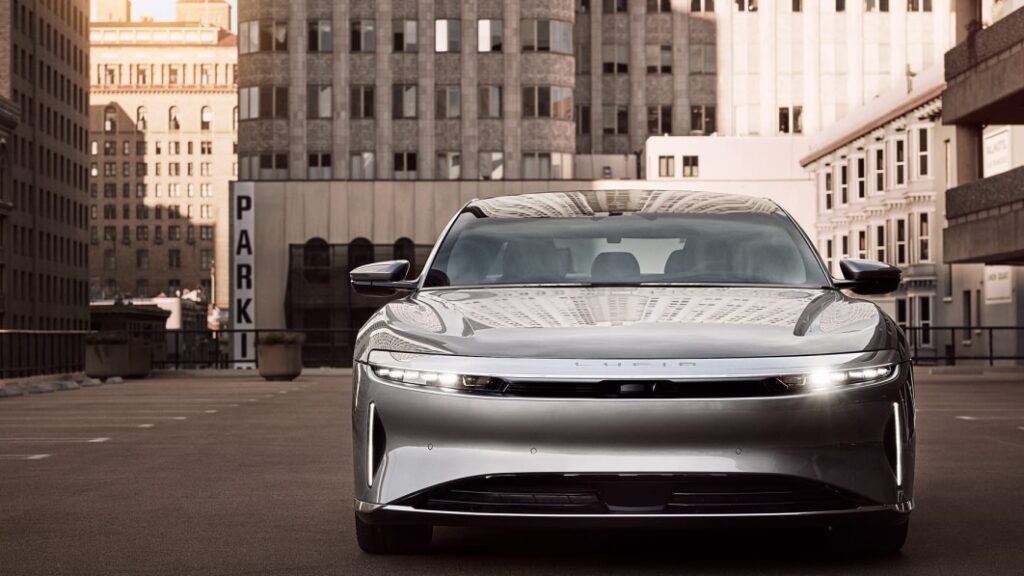EV startup Lucid is losing over $500,000 on every car it sells

The
Lucid Air Grand Touring Performance.
Tim Levin/Insider
Lucid’s second quarter earnings fell short of expectations after per-vehicle losses went viral.
2023 is a make-or-break year for startups like Lucid.
Analysts are still optimistic about the second half of 2023.
It’s a tough time to be an electric-vehicle startup, and luxury brand Lucid is no exception.
The startup, founded by former Tesla Chief Engineer Peter Rawlinson, posted second-quarter results on Monday that once again fell short of analyst expectations. The company posted $150.9 million in revenue from the 1,404 vehicles it sold in the three-month period. Coupled with a net loss of roughly $764 million, the results suggest a loss of more than $500,000 per vehicle.
Still, analysts were encouraged by Lucid’s outlook for the rest of the year, as the company confirmed its full-year production target.
“The tone of the call was notably more positive than we have heard recently,” Chris McNally, an analyst with Evercore, said in a Tuesday note. “With yesterday’s news of price cuts, investors will now question how much volume can grow on price reductions.”
Shares of Lucid rose more than 6% in trading Tuesday.
Amid a struggle to find enough buyers for its vehicles, Lucid had previously reported deliveries for the quarter of only 1,404 of the 2,173 cars it built during the period. In its most recent attempt to boost demand, Lucid is slashing the price of the Air EV by up to $12,400 through August 31 and the Air Pure AWD by $5,000.
Profit losses on electric vehicle sales are nothing new. It’s a concept that legacy car companies like Ford and GM are also grappling with as they try to transition their fleets away from gas-guzzling vehicles.
And an ongoing EV price war started earlier this year by Tesla’s Elon Musk, is forcing deeper losses as companies chase volume over profits in the EV sector.
2023 is make-or-break for EV startups
The outlook for startups like Lucid was never rosy for this year. EV newcomers face a market flooded with new competition, a brutal supply chain, a pending battery crisis, and rising interest rates that make raising money harder to do.
Startups like Lucid and Rivian have struggled with overproduction for the past year, but Lucid appears to have the biggest inventory problem. In the second quarter, Rivian delivered roughly 90% of the vehicles it built, versus Lucid, which only delivered about 64% of what it built.
Lucid is not alone in its inventory build-up. Ford is also struggling to gin up demand for its electric Mustang Mach-E, which some dealers say they are turning away. Ford recently adjusted its electric vehicle timeline to reflect this change in EV demand.
After several years of rapid growth from eager early adopters to the electric vehicle segment, EV sellers are facing the first plateau. EV sales hit a high of nearly 6% in the US last year, bringing the segment closer to a predicted 7-10% tipping point. At this level of adoption, EV sales are expected to slow considerably.






